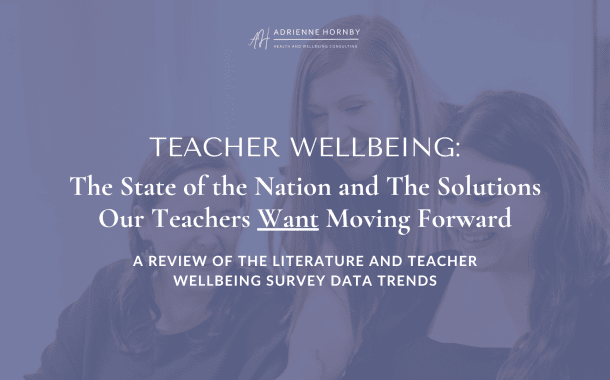
Creating a School Culture Where Staff Feel Seen, Heard and Valued with Daniela Falecki | Season 3: Episode 10
Have you ever felt awkward accepting a compliment or unsure how to show genuine appreciation to someone on your team without it feeling forced? In busy school environments, appreciation often gets reduced to coffee carts and morning teas. While well-intentioned, these gestures don’t always land in the way we hope. Many educators still walk away feeling unseen, undervalued, or even uncomfortable with recognition. So what gives?
In this episode, I chat with Daniela Falecki, an international speaker, coach, and founder of Teacher Wellbeing, to unpack what she calls The Appreciation Paradox. Drawing on decades of experience in education and the fields of Positive and Coaching Psychology, Daniela shares why meaningful appreciation is a wellbeing essential, not a fluffy extra. Together, we explore how schools can move beyond performative gestures to create a culture where staff feel truly seen, valued and motivated to keep showing up with heart.
In this episode, we cover:
- The concept of the Appreciation Paradox and why educators deeply crave appreciation but often struggle to receive it or recognise it
- Why typical “rewards” like coffee carts or morning teas often miss the mark when it comes to meaningful appreciation
- The importance of having deeper, more personalised conversations about what appreciation looks and feels like for individuals
- The difference between recognition and appreciation, and why both are necessary in schools
- How appreciation ties into burnout prevention, workplace connection and motivation
- Common cultural barriers in schools that make appreciation feel like “lip service” or inauthentic
- Why vulnerability matters in leadership, and how to model it in a professional way
- How appreciation preferences differ, drawing on “The Five Languages of Appreciation in the Workplace”
- The importance of coaching-style leadership and better questioning to create deeper, more human conversations
About Daniela
Daniela Falecki, founder of Teacher Wellbeing, is an international speaker, author, and the “keep-it-real” teacher, known for her high-energy, engaging presentations that leave audiences laughing and thinking. With over 25 years of experience in Australian schools and a background in Positive Psychology and Coaching Psychology, Daniela empowers educators globally to enhance their wellbeing. She holds a Master’s in Education (Leadership) and has lectured at the University of Sydney, where she was named Lecturer of the Year in 2014. A licensed Mental Toughness practitioner and Executive Coach, Daniela is committed to supporting educators in thriving both personally and professionally.
Links and Resources:
Explore the Well-Led Schools Partnership Program
Free resources, publications and podcasts
www.teacher-wellbeing.com.au/resources
– Download a free eBook, “Foundations of Teacher Wellbeing”
– Join the newsletter list for fortnightly insights
Shop for card games and books
Connect with Daniela via:
Her website: www.teacher-wellbeing.com.au/
LinkedIn: www.linkedin.com/in/daniela-falecki-76690325/
Instagram: www.instagram.com/teacherwellbeing/
Facebook: www.facebook.com/teacherwellbeing/
Connect with me via:
My website: adriennehornby.com.au
LinkedIn: linkedin.com/in/adrienne-hornby-a4126a205/
Email: hello@adriennehornby.com.au
From the blog
Optimising School Workload with Practical Tips and Resources from the AITSL Workload Reduction Toolkit
Ask any teacher or school leader about their biggest source of stress, and you’ll likely hear the same answer: workload. Evidence indicates that school leaders…
Teacher Wellbeing: The State of the Nation and The Solutions Our Teachers Want Moving Forward
Teacher wellbeing is not just a personal issue; it’s a professional necessity. It’s closely tied to educator success and student outcomes, and a lack of…
Staff Morale in Schools: How Culture, Leadership and Staff Drive Engagement
If you’ve been leading or working in a school over the past few years, you’ve probably felt it – the subtle, steady dip in energy,…



